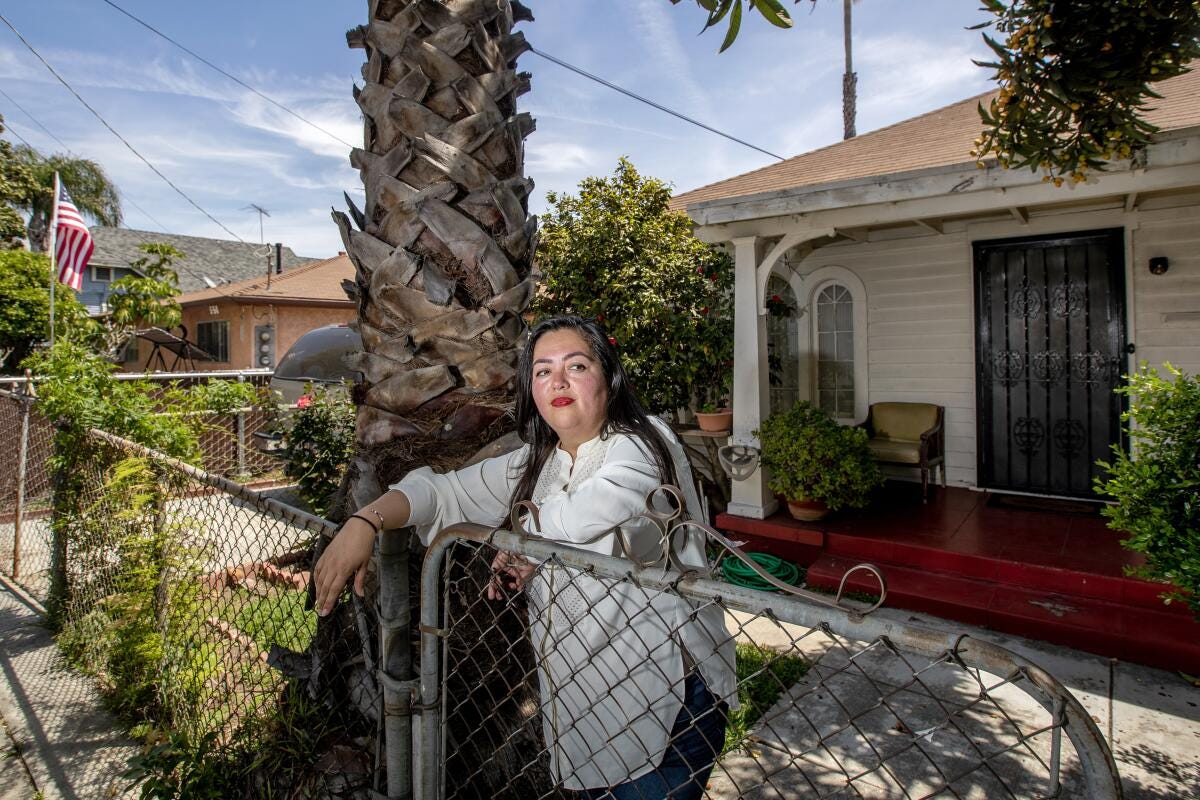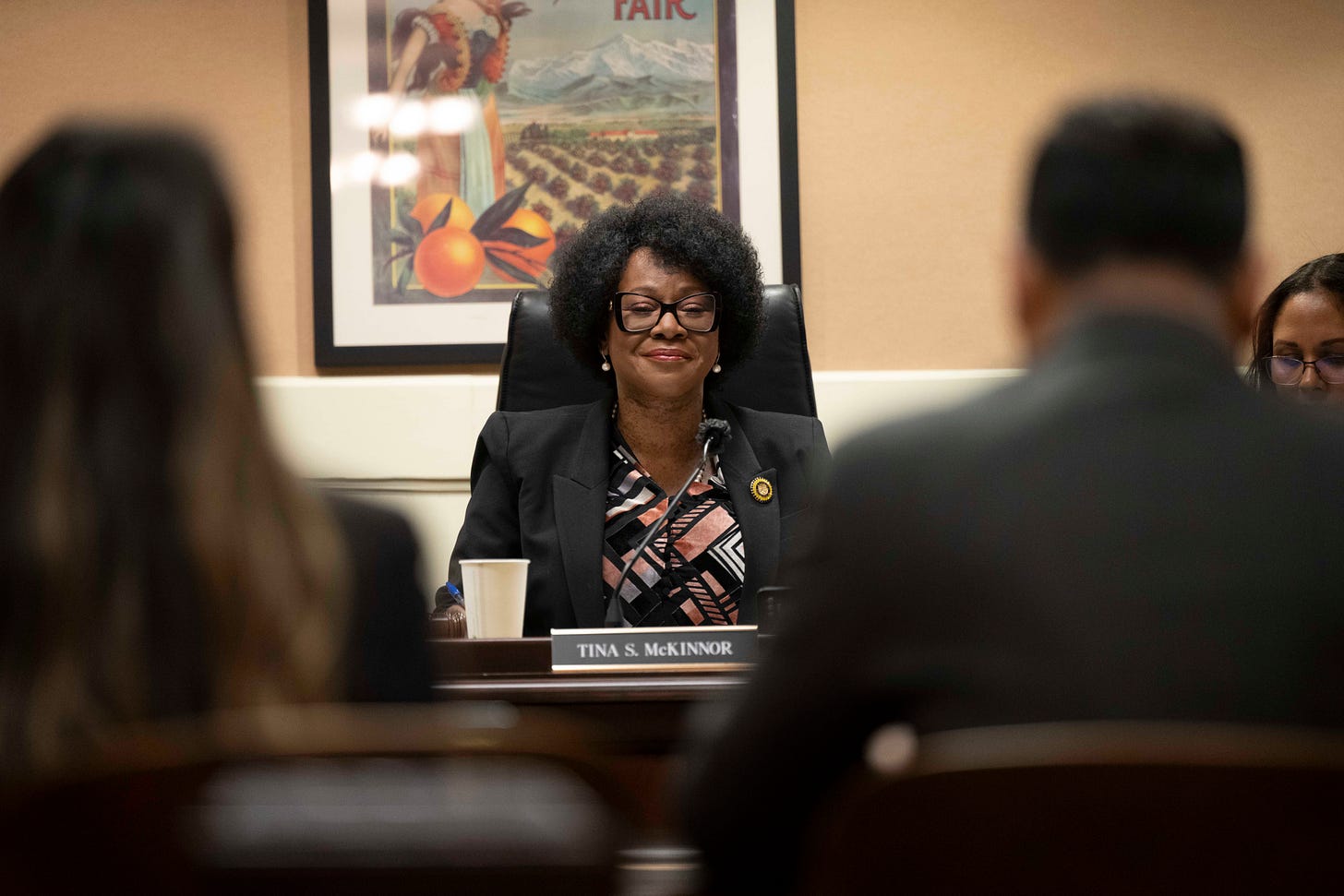Climate Politics Almanac: Reflecting on the California legislative session
How climate corporate accountability came to pass
The just-completed 2023 California legislative session has redeemed the disappointment for the state’s climate hawks of 2022.
2022: A Year of Losses
In December of 2022, the state Public Utilities Commission approved a plan undermining solar energy by greatly reducing compensation for consumers who install solar on their roofs.
A few months earlier, the Climate Corporate Accountability Act by Sen. Scott Wiener (D-SD-11-San Francisco) was blocked by a narrow margin in the state Assembly. The bill would have required large businesses in California to disclose their climate pollution, but it ran into heavy opposition from powerful industries.
Wiener pledged to try again in 2023, saying, “If we want to avoid a full climate apocalypse, we need to understand corporate pollution—all the way down the supply chain.” Explaining his frustration with industry opposition, Wiener said:
“I think it’s a microcosm of why we have a climate crisis….You have corporations that are opposing federal action and then going to the statehouse and saying, ‘Don’t do it at the state level, do it at the federal level,’ while killing the federal action. They just don’t want anything. And that’s just not an option anymore.”
How Climate Corporate Accountability Came to Pas
Wiener revived his legislation as part of a package of bills strengthening corporate accountability for climate pollution and recognizing climate change as a financial stability threat.
SB 253 creates a process for companies above $1 billion in annual revenues doing business in California to report on their Scope 1, Scope 2, and Scope 3 emissions. The definitions of those different forms of pollution are explained here. Scope 3 emissions are by far the most controversial. Business interests and their allies in Congress have sought to limit or eliminate Scope 3 reporting from the proposed rule, claiming that supply chain decisions or “downstream” activity are not material to the company’s investors.
Progressives have retorted that disclosure of Scope 3 pollution is critical to understanding the whole picture of the climate risk to which public companies are exposed. By excluding Scope 3 pollution as irrelevant, the biggest fossil fuel companies would be able to conceal information about how the combustion of their products is driving the climate crisis.
In killing the Climate Corporate Accountability Act last year, the Chamber of Commerce and other industry groups argued that California should not get in front of the Securities Exchange Commission’s proposed federal rule. But a year later, that rule has not been finalized.
Wiener’s legislation passed during the final week of California’s legislative session on Monday, September 12th. Nine Assemblymembers whose abstentions and no votes prevented passage last year switched their votes to “Aye.”
One day later, SEC Chair Gary Gensler faced many questions in a Senate Banking Committee hearing about why the federal rule was delayed. He acknowledged that polluter concern over Scope 3 was a major part of the hold up, with the SEC planning to buckle to the pressure. Inside Climate News reported: “California’s disclosure rule would be more stringent than the federal one being finalized by the [SEC].”
Another part of the corporate accountability package that passed was SB 261 by Sen. Henry Stern (D-SD 27-Malibu). That bill requires California businesses with at least $500 million in annual revenues to comply with international standards for reporting climate-related financial risk.
Governor Gavin Newsom announced his intention to sign both SB 261 and SB 253 during an event at NYC’s Climate Week.
Victory Pending Signature: Orphan Wells
Since California lawmakers did not foreclose extraction of the Monterey Shale when they had an opportunity in 2013, the state now faces an estimated $21.5 billion in cleanup costs, an amount that exceeds what the oil industry has set aside to pay those costs by…nearly $21.5 billion! Industry intends to follow the coal industry’s playbook by transferring ‘orphan’ wells to shell companies, then exploiting the bankruptcy process to dump cleanup obligations from those wells onto the public. States have options for limiting this practice.
The legislature also approved the Orphan Well Prevention Act by Assemblymember Wendy Carrillo (D-AD 52-East Los Angeles),1 which prohibits the transfer of wells unless the state receives a “full cost” bond to pay for the cleanup of that well. It is not yet known whether Newsom will sign the bill by the October 14 deadline.
Disaster Averted: Insurance
As the end of the legislative session approached, news media reported on a behind-closed-doors deal to entice major insurers back to California’s market after a high-profile exodus earlier this year. Consumer advocates rushed to Sacramento to learn details, and captured a recording of an insurance lobbyist boasting of plans to circumvent the public legislative process and “jam” through an agreement in the final days of the session. Though legislative text never materialized, Insurance Commissioner Ricardo Lara was reportedly working with business trades to negotiate a deal that would have:
Weakened a consumer protection law called Proposition 103 by streamlining the process for approving insurance premium increases.
Expanded the state’s insurer of last resort, known as the FAIR plan, and enacted a “surcharge” on all Californians’ insurance policies.2
Permitted the use of forward-looking catastrophe models in insurers’ pricing of policies.3
Consumer Watchdog— the driving force behind passing Prop 103 in 1988—mobilized climate and civil society advocates to oppose the deal, pointing out that the deal as reported in some ways resembled an industry-friendly overhaul signed by Florida governor Ron DeSantis in December.
Imitating Florida's law is a dubious approach. DeSantis’ new law is unpopular, due to its numerous anti-consumer provisions, and it has not succeeded in stabilizing the state’s insurance market. Plus, California’s insurance market remains by and large healthier and more affordable than Florida’s, notwithstanding continued distress driven by fossil fuel pollution, as consumer advocate Doug Heller testified before the Senate Banking Committee on September 8th.
Last weekend, the deal fell through. The public never got to see the contents of what was being negotiated. Nonetheless, state newspapers framed the breakdown of negotiations as a major missed opportunity. The Sacramento Bee asked if a deal to “help” Californians insure their homes had fallen apart, while the San Jose Mercury News called the insurance market crisis “unresolved,” and lamented that there was “no relief in sight” for Californians.
The media coverage suggests that the passage of a last-minute deal might have generated positive headlines about major insurers again writing new policies in the state, even though there would have been no guarantee that they’d remain. In pursuit of those positive headlines, lawmakers will return to the table next year.
Already, the contours of a future deal have been reported, and Lara has released a regulatory proposal requiring greater wildfire coverage in exchange for higher rates. Newly elected Senate leader Mike McGuire (D-SD2-North Bay) represents the region of California most vulnerable to intensifying wildfires, and centrist Sen. Bill Dodd (D-SD 3-Napa) praised Lara’s proposal while saying there was more for the legislature to do.
To add pressure for their deregulatory demands, it is possible that insurers may announce further market withdrawals and cancellations. Consumer Watchdog wrote to California Attorney General Rob Bonta alleging that insurers violated antitrust laws by colluding over the timing and scope of recent announcements that they’d be pulling back from the state’s market.4
To truly help Californians “resolve” the challenges plaguing the insurance market, any legislative intervention should incorporate proposals to reform land use policy and encourage climate resilience investments by homeowners. The Department of Insurance should integrate climate risk into its regulatory framework, adopting recommendations from the Federal Insurance Office (FIO), such as scenario analysis5 and the inclusion of wildfire risk in the formula for determining insurers’ capital requirements. And, as Sen. Elizabeth Warren (D-Mass.) mentioned in the recent banking hearing, insurance companies must end their underwriting support and investment in fossil fuel pollution.
Unfinished: Fossil-Free Pensions
The final part of the corporate accountability package was the Fossil Fuel Divestment Act (SB 252), a bill requiring divestment of fossil fuels by California’s giant retirement funds. Assembly Labor Chair Tina McKinnor (D-AD 61-Hawthorne) announced her intention to hold hearings on that legislation next year, opening her up to criticism for failing to act this session. Although public employees support the legislation, their unions’ lobbyists do not, and the labor-ally McKinnor is showing far more openness to the legislation than Jim Cooper, her fossil-fueled predecessor as Labor Chair. McKinnor, was who was endorsed in her election by climate orgs such as Lead Locally, has many options for improving how California’s pension systems manage climate risk—but action will be difficult until grassroots activists change the tone of union leadership on fossil-fuel divestment.
Looking to 2024 and Beyond
We are “emerging out of the brief manic era of hydrocarbon industrialism” at a moment when our democratic institutions are mired in dysfunction.6 Leaders in each branch of our federal government seem unwilling to dismantle the barriers that constrain economic policymaking and thwart climate action. Paradoxically, however, we also seem to be in a moment of renewed public policy experimentation. One could envision California Democrats unifying their ambitious governor, statewide officers, and legislative supermajorities around a comprehensive agenda to tackle the crisis unfolding in insurance markets.
Such a plan would necessarily include the recommendations made by experts at a US Senate hearing last week: strong incentives for homeowners to make their homes more climate resilience; resources for community planning that incorporate the best available hazard mitigation techniques; and the FIO’s suggested regulatory reforms.
It will also require California legislators to be creative and committed to the principle that state governments are “laboratories of democracy.” Several of them just demonstrated impressive competence in delivering climate finance reforms to Newsom’s desk.
Wiener had previously signaled his intention to run for Congress in the expected event that House Speaker Emerita Nancy Pelosi retired. When asked earlier this year why he is looking for a promotion to the dysfunction of Congress just when his influence in California’s legislature is growing, Wiener gave a politically savvy answer, explaining that he’d found ways to be effective at every level of government. Pelosi, age 83, disrupted Wiener’s plans by announcing her 2024 re-election campaign.
It now seems likely that Wiener will seek a third and final term in the California Senate next year. The silver lining is that we need skilled lawmakers like him to continue working at the state level to get around the climate obstructionism that pervades in Washington. There is, for example, one major piece of the climate puzzle where federal regulation is broadly preempted, and where state lawmakers hold most of the power: insurance.
Carrillo is now seeking to unseat L.A. City Councillor Kevin de Léon in the March 2024 primary.
The FAIR plan is funded and backstopped by insurance companies, and currently offers expensive policies with limited coverage to policyholders in the riskiest communities. Consumer Watchdog argued that using a “fee” to pass responsibility for adequately funding FAIR plans to all California policyholders was a “bailout.”
California’s requirement that rates be based only on past damages is unique, and was cited implicitly as a negative feature of California law in FIO’s report. Per FIO, there is a strong need for catastrophe models to be improved to incorporate a long-term focus and better climate data. Consumer advocates have warned that updates to these models must be made transparently and with proper scrutiny of insurer practices like drone flyovers.
The same federal law that preempts federal regulation of insurance largely exempts insurers from federal antitrust scrutiny. Some states, including California, have added antitrust oversight of insurance to their state codes.
As FIO noted, Lara’s predecessor Dave Jones initiated scenario analysis in 2018. Lara has abandoned Jones’ approach, allowing Connecticut and New York to surpass California’s leadership among states integrating climate risk into insurance regulation.
Reauthorization of the National Flood Insurance Program and President Biden’s request to replenish FEMA’s Disaster Relief Fund following this summer’s cascade of climate disasters are currently being held hostage to the House Freedom Caucus’ impeachment demands.







